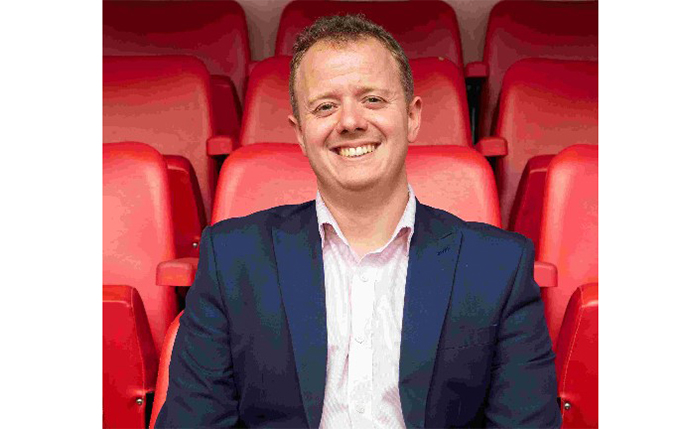Deloitte session to conclude Big Four Bootcamp

On Wednesday 4 November, the Management School is hosting a session with Deloitte to conclude its Big Four Bootcamp series.
The Big Four Bootcamp is run by the School’s ULMS Extra team and aims to provide students with information on graduate recruitment. Participants have the opportunity to hear from the Big Four Firms – Deloitte, EY, KPMG and PwC.
The final session will be delivered by a current student, who is on their Year in Industry at Deloitte, as well as three alumni who currently work there. Attendees will hear more about what it’s like to work for the organisation and the range of possible career routes. They will also be given advice and tips for the application process.
Deloitte has recently opened up graduate opportunities in its Sports Business Group for the first time in its history. Chris Winn, Programme Leader for MSc Football Business and a Football Business Consultant at University Campus of Football Business (UCFB), graduated from the Management School’s Football Industries MBA in 2014. Prior to his current role he worked in Deloitte’s Sports Business Group and has kindly shared some reflections and advice for current students who might be interested in this career route.
What made you choose this particular area within Deloitte?
As a graduate of ULMS’ Football Industries MBA programme, as well as being a qualified chartered accountant, I finished my time in Liverpool with a specific career plan in mind - that being to get into the financial side of football. Having read Deloitte's famous reports on the industry since school, such as the Money League and the Annual Review of Football Finance, gaining a place in that team had always been an ambition. On graduation however, there were no existing vacancies to apply for, and as such my first step into sport was with Adidas. But as luck would have it, a vacancy materialised shortly after I began that role, and as such with nothing to lose I applied and ultimately got the job. As hard as it was to leave adidas behind- themselves being a brilliant place to work- a position in Deloitte Sports Business Group was one I'd worked towards for many years.
What did an average working day look like for you at Deloitte?
The largest component of my time was always on chargeable client work- working with clubs, leagues, governing bodies and other sporting organisations on a wide array of consultancy-based projects- ultimately advising on financial and strategic matters. Around half the client work was football, the rest any other sport you can think of really. Whilst the vast majority of time was spent in the office in Manchester, as we were the only 100% focussed sports team in Deloitte globally, my work was also of a global nature too, meaning I got to travel to Abu Dhabi, Riyadh and Toronto to name a few, as well as European cities such as Barcelona and Brussels.
The rest of the time I'd be working on our annual publications- gathering data and co-authoring the Deloitte Football Money League and the Deloitte Annual Review of Football Finance, as well as leading on our bi-annual transfer window press releases. I loved this side of the job as seeing my work reported around the world really gave a sense of pride- but equally meant everything had to be completely right and triple-checked!
What advice do you have for students considering job searches in Sports Business or the Big Four more generally?
If you're trying to break into the sports industry, you need to make yourself stand out, just because it's a relatively small industry compared to the normal graduate routes, whilst obviously also tremendously competitive. A sports business masters is one way of bridging the gap so to speak, such degrees often providing networking opportunities which if used well can open doors- and the first role is always the hardest in sport, after this it’s much easier to move around. If that's not for you, demonstrating your specialist knowledge in a particular field of the industry you want to work in is another way to get noticed, usually via blogging on LinkedIn. Beyond that, making your CV relevant in terms of transferrable skills is always an easy way to show you're serious, as is reaching out to people working in the industry on LinkedIn- not everyone will reply but some will and all it can take is reaching the right person at the right time. Above all, don't just come across as a fan- you've got to show you have done your research and understand the nuances of the industry.
Wider Big 4 applications are often all about showcasing your personality and skillset beyond academia- yes they're always going to look out for a strong degree - although these days your discipline is less important, but showing you're smart, can work professionally, and will be a good fit for their team are often the aspects they are looking for. So make it clear in your application why you're applying, why for that specific role and why the company itself- a few lines to show you know the role, the company, shows it's not a generic application. Next, psychometric testing- practice makes perfect. Sites such as SHL give ample practice, the careers team will have an up to date idea on those. Then once it becomes interviews/assessment days, all about being prepared. If you are faced with a group exercise (post-COVID), don't dominate the room, but don't be so quiet they can't assess you either. It's all about quality, not quantity, so show your stuff when relevant, don't shout down other candidates. Finally, partner interviews are generally at the point where they are likely going to take you on- but want to make sure you will fit in the team. At this stage let your personality shine through, you've done the hard work already!